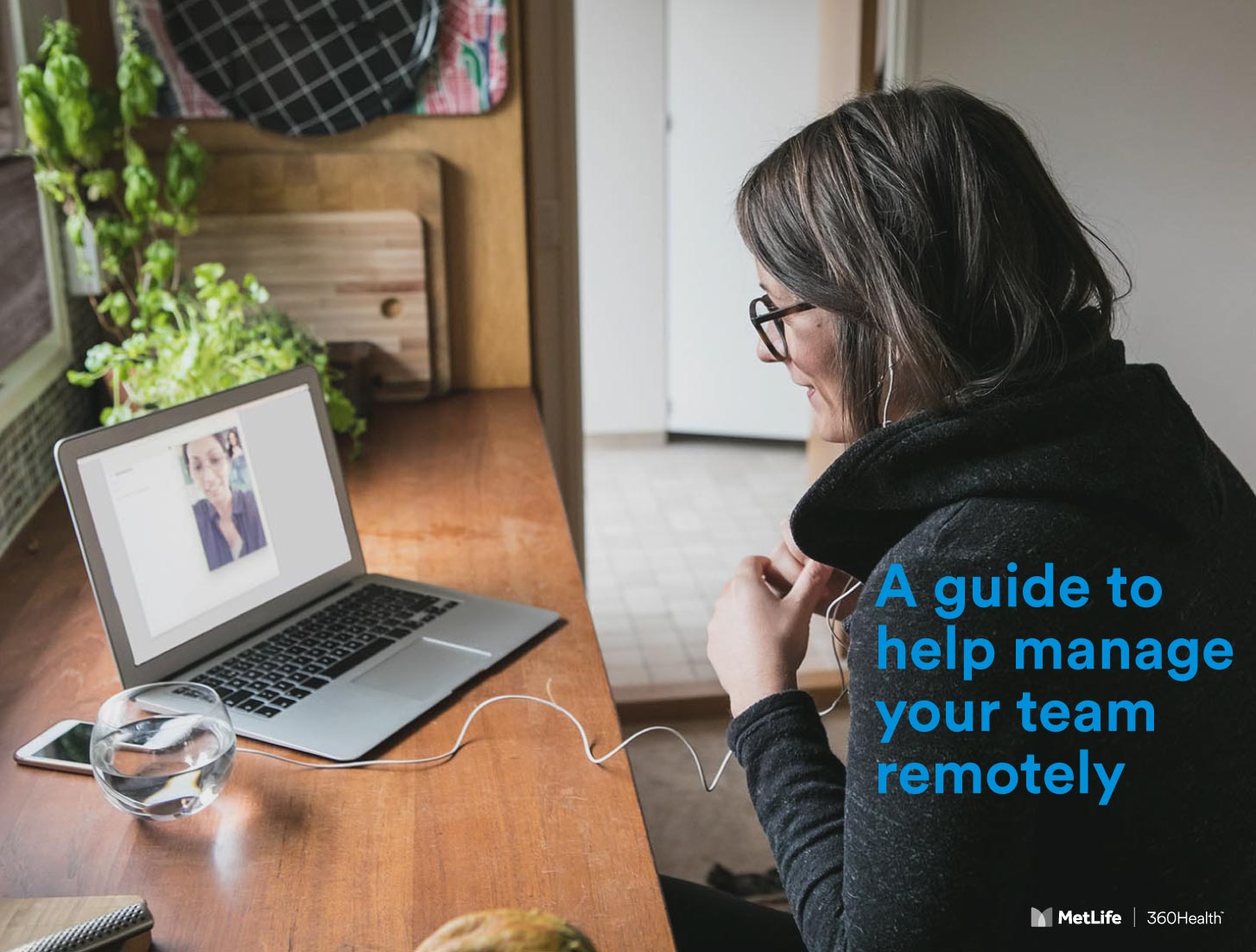
Matthew Lane, Principal Adviser of Wealth Fundamentals, is there for his clients every step of the way – in particular, at claims time. In this podcast, Matthew shares his learnings and how they’ve enabled him to build a strong and caring claims process.
Matt Venus:
Morning everyone and welcome to the MetLife podcast series. My name is Matt Venus and my guest today is Matthew Lane from Wealth Fundamentals. Matt has been an adviser for the past 15 years and is well known for being both a technical adviser and someone who really engages very well with his clients to build long term relationships. Today's topic and why we've asked Matt to join us is in relation to the topic of claims advocacy. So today, welcome Matt, thanks for your time.
Matthew Lane:
Thanks for having me Matt.
Matt Venus:
Matt, just a couple of things about your journey to get to your business and where you're at right now. Tell us maybe about your business, the history, maybe the staff structure and the types of clients you advise please.
Matthew Lane:
Yeah, no worries at all. As you mentioned, Wealth Fundamentals has been around since 2000. It's a business that was started by my father Chris Lane, who's had an extremely long journey in the industry working for one of the major life insurance businesses himself in a managerial role and stepped out in 1994 to start his own insurance business and then in 2000 merged with another business partner to form Wealth Fundamentals. Since 2000 we've been growing the business which was predominantly a life insurance business to start with. That was the roots of dad's background and from there we have grown out to become a holistic or full financial planning business as well. Within Wealth Fundamentals we have three advisers there's four support staff and the client base that we work with is traditionally your pre retirees and retirees.
Matthew Lane:
But over the last, probably five years now, we have really been focusing on that young professional market as well, looking to provide advice to clients around our demographic and age group. I think there's a lot of advice benefits that we can provide to the clients around investment advice, insurance advice, superannuation, debt management so that the Wealth Fundamentals business has really expanded to what we call those certain fundamentals of advice.
Matthew Lane:
From a business point of view as I said been around for 26 years now in various formats, had a lot of experience and especially on the life insurance side of things which is the key part of our discussion today is something that we see as one of our key focuses, not only for the young professionals, but also our retiree market as well where life insurance becomes a really key component for them if they have some younger siblings that they have to look after themselves.
Matt Venus:
Yeah, no thank you for that because it's about understanding kind of where you come from is often what develops into the proposition you now deliver for your clients and clearly with your father starting the business and then evolving into what is now a full holistic practice is a great achievement. So I guess the one thing about that journey is that over time you would have developed a way of dealing with clients and that client adviser relationship, not only in the advice delivery process and maybe you can tell us a bit about what that looks like? But also then have that translate into what would you call a claims process as well?
Matthew Lane:
Yeah, absolutely. So from that the client adviser relationship's something that's so key and important to our business. We're a business that has a small number of clients so that we can really focus on that ongoing advice relationship. Our whole model is about trying to find clients that are seeking advice and willing to take on advice and are looking to create a goal and plan going forward and therefore we can work with the client over hopefully 10, 15, 20 years to develop that plan and therefore in building that advice relationship, part of the key component of advice for us, as I've mentioned before, is that life insurance component. So how that then builds out around the claims side and the discussion with the client up upfront is insurance is an extremely key part of any wealth accumulation plan. So we have that discussion with clients all the time around where is it that you're trying to get to, but there are going to be hiccups along the way, and that's where that advice piece really steps in with insurance.
Matthew Lane:
It isn't just a product to be sold, it's a really key important process in your wealth accumulation plan. So what are you trying to get to ultimately is your goal and where you are now, there's a significant gap between those circumstances and if that occurs, that's where we have that discussion with our clients around the life insurance and how that then flows through into a claims process is the way we approach life insurance is it's not about a product being sold and "excellent, tick the box, stick it in the bottom drawer, I've got something now." Right from day one life insurance and the products that you take out is about the ultimate outcome which is a claim. So we've got the cover in place to try and protect the gap that is between where you are now and where you're trying to get to but ultimately everything that we're discussing in your need for insurance is based around a claim eventually happening. So that comes down to which product are we recommending?
Matthew Lane:
That's going to come down to your circumstances and which product has the definitions or benefits or pricing that ultimately fits in to that outcome. If something goes wrong, we need to claim. So right from day one, and I think in the industry, the way it's going at the moment as well, compliance, audit, regulators are always looking at how is this in the best interest of your clients? And we come back to, whether we like it or not, industry providers are doing a lot of the research on them. They're favourable, unfavourable at times but always that comparison is coming back to benefits that a policy provides and all of those benefits come back to what's going to happen at claims time and which benefits we'll be able to claim under.
Matthew Lane:
So the process really needs to be considered from the start as to what is the end outcome and the end outcome is having a claim if something goes wrong. So therefore, the initial process is always about what benefits are we needing to insure in case something goes wrong down the track. That's sort of something that we're really building into our advice process is that in consideration as to what we're trying to achieve and I think claims, it has to be at the forefront of any of those discussions with the client.
Matt Venus:
Yeah, that's a really interesting way of being able to describe that and I think the one thing out of that statement, of that set of statements there is that you've got to get your client claim ready from the start because we don't know whether the claim's goanna happen the week after we put the policy in place or 20 years down the track per se.
Matthew Lane:
Also in terms of that positioning of the client too, through the underwriting stage is also setting that expectation of claims time, so if we're underwriting at the moment and a loading's placed on the policy or an exclusion placed on the policy, it is also counting back to the client, to say "well at claims time now, we've got to be mindful that your back is now not included in the claim" or "this medical condition isn't included as well." So underwriting its difficult as it can be at times. It isn't just a wall to get a policy in place, it's again trying to understand that process as at claims time, what we are actually going to be claiming for and being able to claim for.
Matt Venus:
Absolutely and that sort of says that the entire piece of putting a client into a policy is about that end to end process, but ultimately with the prize at the end of it is if something was to go wrong, to make sure that you're claim ready and that you're there with a robust process to help them through that time. So I guess that, over the years you would develop and refined your process for claims or management for clients. Are there any unique services that you offer as part of that, which you think separate, maybe just a bit of experience you've had over time which has made it easier for clients during that time in their life?
Matthew Lane:
Yeah, absolutely. As you deal with more and more claims you refine your process all the time but within the business, we have a dedicated claim's manager so Melissa's been in the business for 16 years now and part of that claims management within the business is about at a time when a client more often than not is dealing with extremely difficult, personal or health circumstances to take a lot of that stress away from the client. So within that process, having a dedicated claims' person in the business complicit deals with a lot of the ongoing policy management as well so the clients have a very familiar voice on the end of the line or face to face where all this is dealt with them throughout the years, just doing some policy administration.
Matthew Lane:
But once that event occurs, they've got someone that they're familiar with and can talk to and we take on all of that, as much of the claims' administration as possible in completing application forms, liaising with the life company and getting as much information as we can together. So that the information that the client has to collate or medical appointments they need to go to get the necessary reports is minimized as much as possible to take that stress away from them.
Matt Venus:
Would you say that's probably the most important aspect when dealing with an insurance on the claim is being prepared and making sure that the client has everything that they require for a claim to be successfully supported by the insurer?
Matthew Lane:
Absolutely, I think the link between a life company and insurer is the biggest benefit that we can provide. One, if there's anything that comes out of the insurer that is questionable we have the experience there to go back straight away to the insurer and say "okay, can you please explain why you need this?" Or "here's some information already" so that once we finally go to our client to say "this is everything that we need," we're fully understanding of what the requirements are and why these requirements are being requested. I think that's one of the biggest things that we've noticed over time is with gaining that claims' experience in the business from the first clients where it was a bit of a "what do we do here?" and you go back and forth and have a million questions and requirements to having that experience to say, okay, this is required, this is why and this is what you need to do. One of the things you need to do A, B, C, D have already been completed by us so you have a very minimal requirement.
Matt Venus:
So I think your comment about learning on the job. I mean, that's the experience thing that you can never buy [crosstalk 00:11:08].
Matthew Lane:
Yeah.
Matt Venus:
Unfortunately, you've just got to go through that [crosstalk 00:11:11].
Matthew Lane:
Yeah.
Matt Venus:
So I guess the question might be if this discussion was to be pointed towards the new adviser or someone who is new to the industry, maybe new to writing insurance, what tips would you give them?
Matthew Lane:
I think that the biggest thing you need to do is communicate. You need to communicate with the client at all times, at the first point of call when they call on you concerned that something's gone on and they're gonna have a potential claim they're at their most vulnerable. So you need to communicate to the client that we're here for you, we've got the experience and we will take on board a lot of the claims concerns for you and be the middle person between you and the life company. So put their mind at ease that there is someone there for them, there's someone advocating on their behalf and they can concentrate on what it is that they're dealing with at the time and not have to worry about the claims process.
Matthew Lane:
So the first part is letting the client know that you're there for them and we'll help them through this process. The next part of it is as much as we experience underwriting and we get terms and we go back and question some of those terms, the same thing needs used to happen with the claims process as well. The adviser has to be there acting on behalf of the client and really making sure that this process is happening as quickly as possible and understanding why these questions are being asked. I think they're probably the two biggest things, one's communication, communication, communication. They're probably the three biggest things.
Matt Venus:
Yeah, it's funny isn't it just how unsaid things often create issues that could have been easily solved with just simply a phone call and a brief conversation [crosstalk 00:12:51].
Matthew Lane:
Exactly.
Matt Venus:
That's definitely the wealth of experience you bring to the client.
Matthew Lane:
No, I mean, without that communication from experience the moment anyone goes to lodge a claim, even if it is a genuine claim, you look at it, you just go "okay submit the paperwork, you'll get paid too." There is in the back of the mind, I think of all claimants that something isn't right with this and I'm not going to get paid. So if you don't contact the client, keep them up to date as to what's going, on a couple of weeks of not hearing from the life company or from the adviser straight away the mind ticks into, "Oh, what's going on here? What are they not going to pay the claim?" and that anxiety can start to build up in the client that something's going wrong with it so that regular communication just to update them as to where they're at in the claims process, what's going on and setting some expectations around timeframes, becomes really settling for the client during the punch process.
Matt Venus:
So I guess, I'd ask you if you could reflect on a recent client experience that you've had which describes exactly those elements of how to work with a claim and get a successful result?
Matthew Lane:
Yeah, so there's one, we're right in the middle of it at the moment. So we've got a client who has had an unfortunate circumstance with their health. That circumstance has happened basically a month after the policy started. So there was naturally with the disclosure requirements that happened in the application process right up to the stage that if the application is accepted, we've got to that stage and naturally when the client called me and said, "this has happened." I've known the client for an extremely long time now so I had no concerns over the genuine nature of the claim, but right from the start, I said, "due to those non-disclosure situations and the event happening so soon after the policy has been accepted, there will naturally be some process here of communication around checking medical history." So it was one of those that we have to work with the client.
Matthew Lane:
Again, coming back to that communication and being honest with them upfront to say, "given timeframes this is going to be a little bit of a messier claim because of the requirements of the insurer to do their necessary investigations." .
Matt Venus:
Mm-mm(negative).
Matthew Lane:
But having that conversation with the life company to be able to say, "this is the process that's happened," discuss it with the client to say, "okay, this is why they need to investigate and look into the claim a little bit further around your medical history and the lead up to submitting the application." We're able to put the clients in mind at ease around what would happen through the process because all of a sudden, absolutely going through medical records and trying to see who you've seen over the last few months. For a client straight away they freak out going "why are they looking for all of my medical history? they're not just asking me questions about what went wrong and trying to look at everything here" so that was a really successful conversation to be able to have with the client around what the expectations are.
Matt Venus:
That's as raw as it gets, it's one that you're currently dealing with, which thank you for sharing that story. How would you sort of think the client actually valued then that insurance just by understanding the process and then seeing it unfortunately in their circumstance come to life so recently from putting the policy in play?
Matthew Lane:
Yeah, I'm hoping we get to that stage, we're getting closer to the finalization of the claim, but it is extremely rare to have a situation where you have all of these insurance discussions and the claims need to occur so quickly. So absolutely that benefit of being able to say, "this is why we put in place" and ultimately this outcome occurring in such a short period of time has been a huge value add and touch wood assuming everything's going through and we get to that ultimate outcome. At the end it will be a real advocate for insurance going forward, and I think that's one of the biggest things that you can have is a really good claims experience because there are so many stories out there and media articles about the bad side of insurance and claims' and the really good stories don't get communicated that much.
Matthew Lane:
But working in the industry and seeing positive claims' experiences, to be able to sit down with a client at the end of the day and go "here's a check" or "here's a payment." All of this that we put in place has come through and now your financial circumstances, that's one stress you don't need to worry about now. The relief that you can see on the client's face, it's a really beneficial part of the industry and the good part of insurance where you can add that value and to say that they're grateful is probably the biggest understatement you could make.
Matt Venus:
Yeah, I think that's where a business obviously for that, that's the business of insurance it's providing that financial support at the worst time of people's lives that they're facing. I guess just to extend on that statement as well, you've probably dealt with a number of clients where the client unfortunately has passed away or maybe their family members who are dealing with their estate. Have you had any particular comments from those members who've had to deal with such a sad time?
Matthew Lane:
The best experience we had with a claim was in 2000, so a while ago now, but we had a client who is mid-forties, who passed away, had a very aggressive cancer and passed away at quite a young age and the client had triplets and the kids were only young teenagers at that stage. The wife passed away, so it was the husband left with three teenage kids, two girls, one boy and at that stage to have the insurance in place which was a significant amount of insurance for them to be able to turn up and say, "look, your circumstances are terrible, but here is a significant check to take away that financial risk, it doesn't give you advice as how to raise teenage daughters we can't help you with that side of things".
Matt Venus:
Yeah.
Matthew Lane:
But to be able to turn up and provide that financial security and then as also part of that process we engaged with some of the estate planning lawyers because at that stage to with the payment and bias so far [inaudible 00:19:23] and I had to self-manage so we can find we were able to do some quite detailed estate structuring, using some super and death benefit trusts and also the estate, in order to create some real effectiveness especially given that they have some children under the age of 18. It allowed a lot of tax beneficial payments to be used by some of the estate trusts that were able to be set up at the time.
Matt Venus:
That's an amazing story, and I think that's the value right there. It's the human element of one, taking away the financial stress, but also then understanding the whole person's circumstance for that family and it's now that they have a whole different set of circumstances to deal with, one of those major things around having someone manage the claim but also that extra step around making sure that the proceeds match the advice that you've given them over time, that it's appropriately dispersed the right way I think is the real value of managing that claim right through to the end even when the proceeds are received.
Matthew Lane:
I was going to say that just comes back to also to the discussion right at the start. The claims experience is the outcome, so having that discussion around how we structure the insurance policy and then once the claim occurs and having those procedures then having that further discussion around this is the structure of the estate and how payments should be structured to minimize the tax, how they should be invested to generate the return because often insurance is put in place to provide with some capital to invest to generate some passive income stream for the beneficiary as well. So to be able to have all of those discussions with the client, that's what the claims process is about not just getting a check written and leaving the client to be on their own to work out what to do with it all.
Matt Venus:
If you have a crystal ball about what the future could look like for the claims, what would be on your short list for a couple of things that might add to the value of the way you manage claims' and clients?
Matthew Lane:
Yeah, absolutely. Technology is the one thing, if we could improve the technology in the claims' process, I think a lot of experience is being added to the underwriting process to make that simpler and easier and reduce the friction that occurs. But our experience is the claims side of things is still extremely paper based and manually involved. If the one thing I could say, "this is my crystal ball, let's build something" I would love an individual client management portal that can be accessed that provides direct access to the claims' manager and a portal where information can be uploaded into, documents can be uploaded, it can all be done electronically. I've described it to someone around when you apply for government benefits via myGov you plug everything in, you get to the end and then there's this checklist as to everything that needs to be provided and you can just upload all of those documents and go straight through into the system, but you can still just log into that system and see where the process is up to.
Matthew Lane:
I think it builds on that communication piece and the visual nature of the claim, whether it's for the adviser or the client can actually access that portal as well to see where things are at but that would be the ultimate outcome for me is to step down some of that underwriting focus and technology brought through to the claim so that we can do things a lot quicker and easier with less friction.
Matt Venus:
Well, you can consider that done Matt. That's no problem at all Matt we can fix that.
Matthew Lane:
Wonderful.
Matt Venus:
But look that's a great suggestion, I love what you said about making the claim a visible experience because often we start with insurance policy is a piece of paper effectively with a promise on it .
Matthew Lane:
Yeah.
Matt Venus:
It's got a big number on it often, but what does that visually mean for a client as you're walking through that process to get to that ultimate outcome.
Matthew Lane:
Yeah.
Matt Venus:
That brings us to the close of our podcast today, I want to thank you very much indeed for your time. It's been really great speaking with you we've heard a lot about your business and the processes. You had some great tips there for some advisers and I think anyone who had been around doing this for a long time, just with this peer to peer interaction, like we have on the podcast can learn with some of the processes they're doing and how they can improve those and if you're new to the industry and doing insurance, I think you've given a whole suite of great tips there for today. So Matt Lane, thank you very much, indeed and we'll speak to you shortly.
Matthew Lane:
No worries at all, thanks for the good time, good to chat with you.
Matt Venus:
Thanks Matt.
Disclaimer:
You have been listening to the MetLife podcast. To find out how you can partner with us, please visit metlife.com.au. This podcast has been prepared by MetLife Insurance LTD. and intended for advisor and internal use only and should not be provided to clients or attributed to MetLife in any advice provided. This material is intended to provide general information only and has been prepared without taking into account any particular person's objectives, financial situation, or needs. Any general information contained within or given during this podcast is not intended to be investment, or financial advice, nor recommendation to invest in a financial product, or undertake any particular strategy or course. In accessing this podcast, you agree to MetLife podcasts disclaimer terms found that metlife.com.au.











